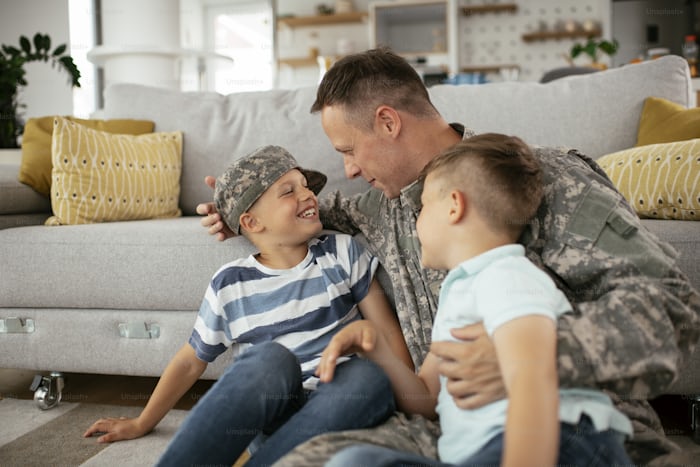Making the Switch from Military to Civilian Life
Making the Switch from Military to Civilian Life can be one of the most challenging periods for veterans. Reintegrating into civilian society often requires adjusting to a different pace and lifestyle. Veterans may grapple with finding a new purpose, rebuilding their identity outside of the military, and understanding the often complicated civilian bureaucracies. During this transition, they must be informed about the support available, including how a VA disability increase can be a significant aspect of their benefits. A smooth transition requires strategic planning and access to comprehensive resources to facilitate adjustment.
Assessing Veterans’ Mental Health Concerns
Mental health is one of the most critical areas for consideration during the transition process. The invisible wounds of war that many veterans bear, such as post-traumatic stress disorder (PTSD), can significantly impact their day-to-day functioning. Veterans and their loved ones must receive the proper assistance and understand the warning indicators and symptoms of mental health issues. This understanding can lead to early detection and intervention, significantly improving these individuals’ prognosis. Additionally, community support and mental health resources can provide veterans with the tools they need to manage their mental health effectively.
Community Support Resources
The community plays a significant role in reintegration by providing a support system that mirrors the camaraderie in military service. Local veterans’ organizations and support groups can offer camaraderie and understanding that is hard to find elsewhere. Resources like peer counseling and local mental health services are invaluable for veterans seeking someone to talk to who truly understands their challenges. Navigating post-service life can be eased with the help of established groups that empathize with their experience.
Physical Health and Rehabilitation Services
Physical injuries and disabilities are shared amongst the veteran population. Accessing the proper healthcare provisions can significantly affect their ability to enjoy a fuller life post-service. Rehabilitation services aimed at veterans need to be comprehensive and easily accessible. It’s also essential for veterans to be aware of their entitlements and to understand the process of seeking an increase in their Veterans Affairs disability rating if their condition worsens. This not only aids their physical recovery but also secures the benefits they’ve rightfully earned.
Navigating Veterans Affairs Benefits
Understanding and navigating the available benefits through Veterans Affairs can be complicated. The array of services and support is vast but can only be overwhelming with the proper guidance. Veterans may face a labyrinth of policies, forms, and procedures that can be challenging to comprehend. Therefore, they benefit significantly from clear, step-by-step guidance and advocacy to ensure they can claim the support they owe. Simplifying and demystifying this process is crucial in helping veterans access the benefits they’ve earned.
Financial Stability and Employment After Service
Securing stable employment is a significant concern for veterans who must often recalibrate their skills for the civilian workforce. Translating military experience into language that resonates with civilian employers can be challenging. This section delves into resources that help veterans articulate their valuable skills, gain new qualifications, and connect with job opportunities. These resources play a critical role in providing financial security and career satisfaction to those who have served.
VA-Supported Career Programs
VA-supported career programs offer crucial tools for veterans uncertain about their next professional steps. These programs improve job prospects and provide vital assistance in aligning military experience with the demands of the civilian job market. Participating in such programs also helps to ensure that veterans can continue to support themselves and their families, maintaining the financial independence they fought to protect.
Community and Social Integration
A sense of community is instrumental in helping veterans reintegrate into civilian life. Veterans’ ability to build new social connections and develop a support network cannot be overstated. Numerous community initiatives and social activities are available to veterans looking to engage with like-minded individuals and ease the transition. Activities such as local sports, volunteer opportunities, or community engagement projects can be incredibly beneficial in fostering a sense of belonging and helping veterans build a new life post-service.
Educational Opportunities for Veterans
The pursuit of education is a pathway that many veterans choose to embark upon after their service. Educational benefits like those provided under the GI Bill can open doors to new career opportunities and enrich personal development. This section explores educational opportunities available to veterans, from traditional degree programs to vocational training, offering them a chance to gain new skills and knowledge that will serve them in their civilian lives.
Lifelong Learning and Growth
Continuous learning and self-improvement are central to personal fulfillment and success in civilian life. Educational programs and initiatives tailored to veterans’ needs can lead to new career paths, personal satisfaction, and ongoing intellectual curiosity. A commitment to lifelong learning is a testament to the resilience and adaptability of veterans as they navigate their post-military lives.
Paying it Forward: Veteran Volunteerism and Mentorship
The service ethos doesn’t end with the military; many veterans find that engaging in community service and mentorship provides a sense of purpose and connection. Such acts of volunteerism are not only beneficial for the recipients but also for the veterans themselves, contributing to their sense of self-worth and community integration. By leveraging their unique skills and experiences, veterans can make meaningful contributions to society, mentoring fellow veterans and civilians and paying forward the lessons learned from their service.
Stay in touch to get more updates & news on Discover Tribune!




